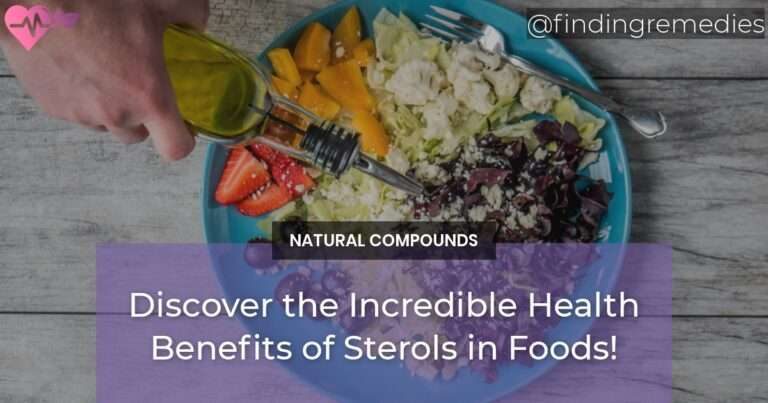Sterols are a group of natural compounds that are found in plants and animals. They are structurally similar to cholesterol and are considered a type of plant-based cholesterol, known as phytosterols or plant sterols. In this article, we will explore the health benefits of sterols and their role in nutrition.
Table of Contents
What are Sterols?
Definition and Types
Sterols are a type of lipid that are found in cell membranes of plants and animals. There are several types of sterols, including cholesterol, plant sterols or phytosterols, and animal sterols.
Cholesterol is primarily found in animal products, such as meat, dairy, and eggs. Plant sterols are found in plant-based foods, such as fruits, vegetables, nuts, and seeds. They are structurally similar to cholesterol but have a slightly different chemical structure.
Sources
The best food sources of plant sterols include:
- Nuts, such as almonds and pistachios
- Seeds, such as pumpkin and sunflower seeds
- Vegetables, such as broccoli and Brussels sprouts
- Fruits, such as oranges and grapes
- Legumes, such as lentils and beans
- Whole grains, such as oats and barley
Sterols and Their Role in Nutrition
Nutritional Profile
Plant sterols are not considered essential nutrients, but they have several health benefits. They are low in calories and high in fiber, making them an excellent addition to a healthy diet. One serving of plant sterols contains approximately 60-70 calories and 2-3 grams of fiber.
Calories
Plant sterols are low in calories, making them an excellent addition to a weight loss diet. They are also low in fat and sodium, making them a heart-healthy food option.
Health Benefits of Sterols
Cardiovascular Disease
Research has shown that plant sterols can help reduce the risk of cardiovascular disease. They work by reducing the absorption of cholesterol in the gut, which can help lower LDL cholesterol levels. LDL cholesterol is often referred to as “bad” cholesterol and is a major risk factor for heart disease.
Studies have also shown that plant sterols can help increase HDL cholesterol levels. HDL cholesterol is often referred to as “good” cholesterol and is associated with a lower risk of heart disease.
Cancer
Research has shown that plant sterols may also have anti-cancer properties. They work by inhibiting the growth of cancer cells and reducing inflammation in the body.
Immunity
Plant sterols may also help boost the immune system. They have been shown to enhance the function of white blood cells, which are responsible for fighting off infections and diseases.
Inflammation
Plant sterols have anti-inflammatory properties, which may help reduce the risk of chronic diseases, such as arthritis and diabetes.
Natural Compounds in Sterols
There are several natural compounds found in sterols that have specific health benefits. These include:
Beta-Sitosterol
Beta-sitosterol is a natural compound found in plant sterols that has been shown to help reduce cholesterol absorption in the gut. It may also help reduce inflammation and improve immune function.
Campesterol
Campesterol is another natural compound found in plant sterols that has been shown to help reduce cholesterol absorption in the gut. It may also help reduce inflammation and improve immune function.
Stigmasterol
Stigmasterol is a natural compound found in plant sterols that has been shown to have anti-inflammatory properties. It may also help reduce the risk of atherosclerosis and improve lipid profiles.
Safety and Risk Factors
Side Effects
Plant sterols are generally safe to consume, but some people may experience side effects, such as stomach upset, diarrhea, and constipation.
Interactions with Medications
Plant sterols may interact with certain medications, such as cholesterol-lowering drugs. If you are taking any medications, you should speak with your healthcare provider before consuming plant sterols.
Recommended Dosage
The recommended dosage of plant sterols is 2-3 grams per day. This can be achieved through diet or supplementation.
Conclusion
Sterols are a group of natural compounds that have several health benefits. Plant sterols, in particular, have been shown to have a positive impact on cardiovascular health, cancer prevention, immune function, and inflammation. They are also low in calories and high in fiber, making them an excellent addition to a healthy diet.

